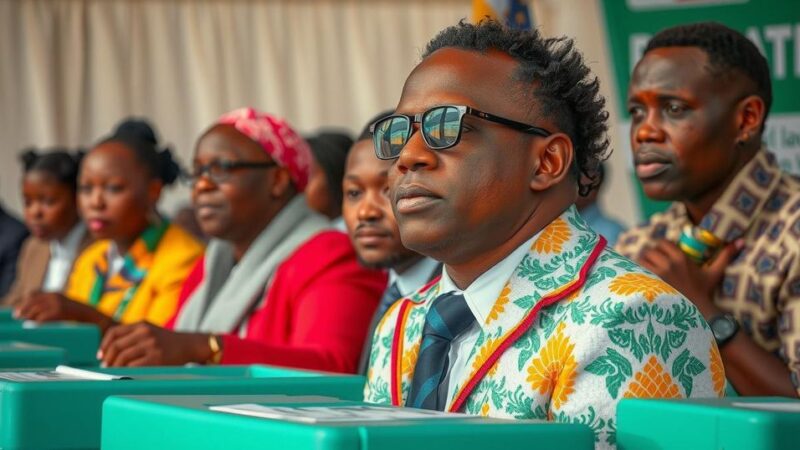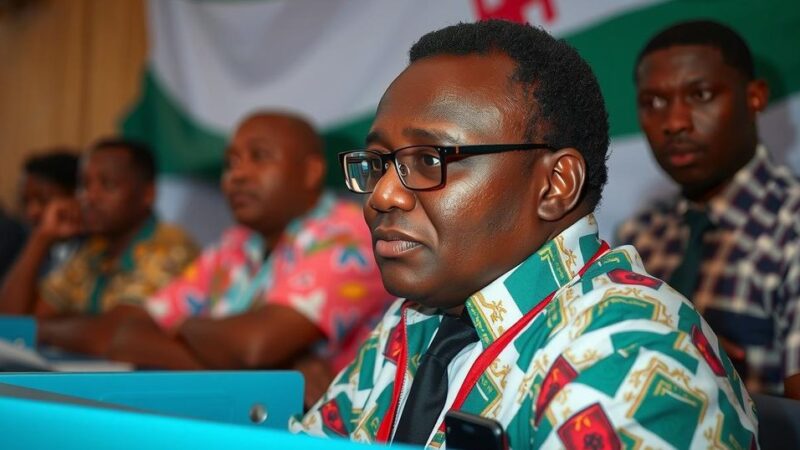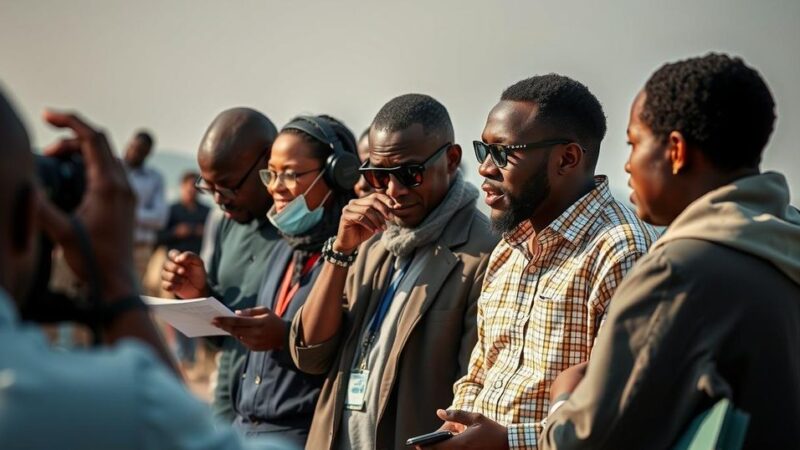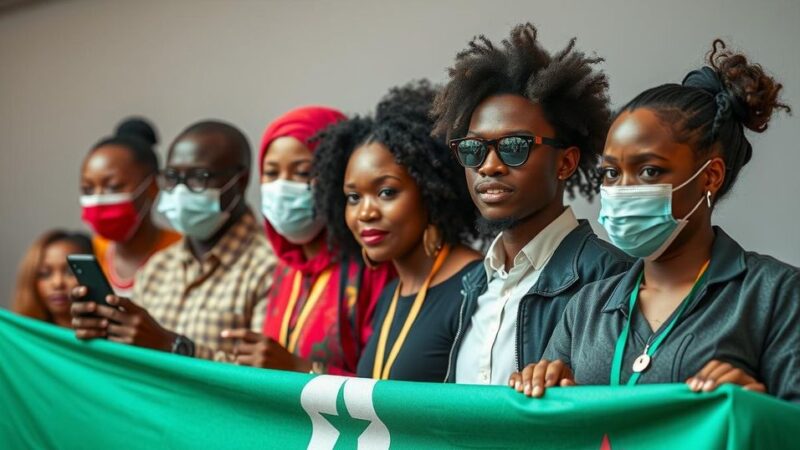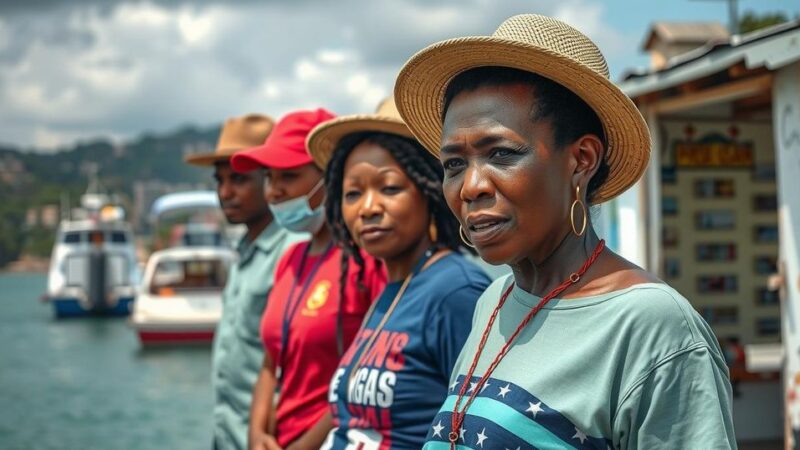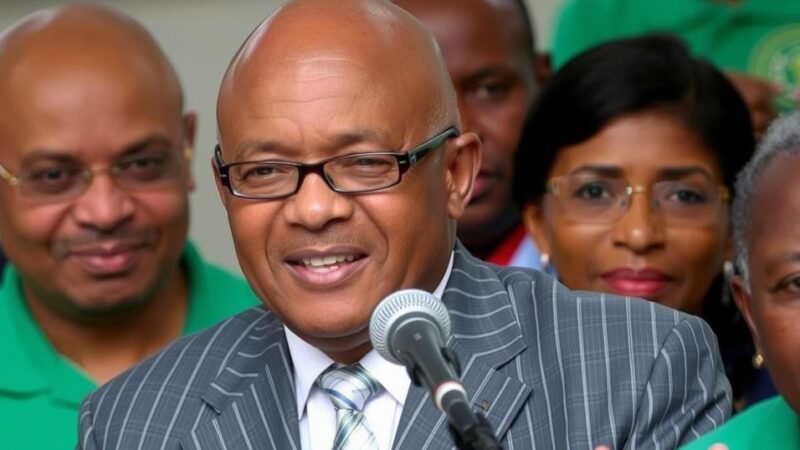Tunisian authorities have undermined the integrity of the upcoming presidential election through last-minute amendments to electoral laws, mass arrests of opposition figures, and suppression of civil society and media. These actions raise serious concerns regarding the legitimacy of the electoral process as individuals continue to be detained for political reasons, and independent organizations face increasing restrictions.
Tunisian authorities have significantly compromised the integrity of the upcoming presidential election scheduled for October 6, 2024, by enacting amendments to the electoral law just days prior to the event. These revisions have effectively stripped the Administrative Court of its authority to oversee electoral matters, thus eliminating a crucial mechanism for preventing electoral abuses. Concurrently, the regime has engaged in the widespread detention of opposition candidates, notably targeting members of the Ennahda party and other political adversaries, while arbitrarily suppressing freedom of expression across independent media and civil society organizations. On September 27, the Assembly of the Representatives of the People passed a new law, which divests the Administrative Court of its oversight functions related to elections. As a result of this legal shift, the Tunis Court of Appeal holds sole jurisdiction over electoral disputes, a move that the government implemented following the Administrative Court’s reinstatement of certain excluded candidates. Despite this ruling, the electoral commission proceeded with the campaign launch on September 14, featuring only three candidates—current President Kais Saied, detained contender Ayachi Zammel, and Zouhair Maghzaoui, a former member of parliament. In a disturbing trend, more than 170 individuals are currently imprisoned on political charges, with expectations that this figure will continue to rise as the authorities intensify their repressive actions leading up to the election. For instance, many members of the Ennahda party were arrested in September, often under the pretext of counter-terrorism laws that enable detention without charge. Additionally, the regime has actively targeted election observation groups—dismissing applications from two notable organizations, I Watch and Mourakiboun—on questionable grounds of foreign funding. This has resulted in increased limitations on civil society activities, fundamentally impairing their roles as watchdogs during this critical electoral process. Notably, there has also been a systematic crackdown on media outlets, with numerous prosecutions stemming from allegations of undermining the electoral process. The combination of legislative changes, mass arrests, and media suppression illustrates a grave threat to the principles of democracy in Tunisia. As a signatory to the International Covenant on Civil and Political Rights, Tunisia is obligated to safeguard the rights of its citizens to engage in free and fair elections, a standard that current measures vehemently violate.
In the context of Tunisia’s evolving political landscape, the integrity of the democratic process is under severe strain as the October 2024 presidential election approaches. Following the revolution in 2011 that sparked hopes for political reform, the consolidation of power by President Kais Saied has alarmed observers who fear an erosion of democratic freedoms. The latest amendments to the electoral law, alongside systematic repression of political opposition and civil liberties, raise significant concerns about the legitimacy of the upcoming election. The unlawful detention of political opponents and restrictions on media coverage compound the challenges facing Tunisian democracy today, as authorities appear more intent on maintaining control than fostering a transparent electoral atmosphere.
In summary, the Tunisian government is undertaking actions that severely undermine the integrity and credibility of the forthcoming presidential election. With the abrupt amendments to electoral laws and the aggressive suppression of opposition and civil society, there is an urgent need for international scrutiny and intervention to protect the rights of voters and preserve democratic norms. Human Rights Watch and other observers have expressed alarm over these developments, urging the release of detained individuals and the reinstatement of fair electoral processes. Without significant reforms, the 2024 presidential election threatens to be neither free nor fair, effectively disenfranchising the electorate.
Original Source: www.hrw.org


